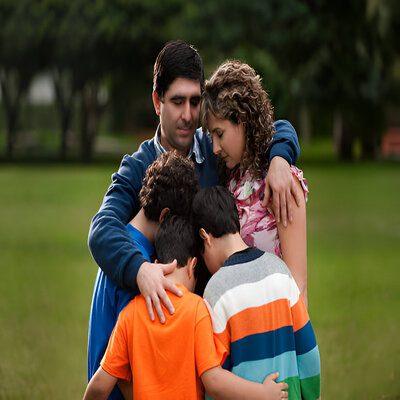A Silence That Speaks Volumes
Loss doesn’t always wear obvious labels like death or divorce. Sometimes, it hides in the corners of our hearts—miscarriages, estranged relationships, unrealized dreams—each a quiet ache society often overlooks. This article delves into these unspoken losses, exploring why validating such grief is crucial for both healing and fostering a more empathetic world.
“Acknowledging the baby I lost at ten weeks was the first time I felt I had the right to grieve—it changed everything.”
When Loss Remains Unsaid

The Unseen Weight of Unspoken Sorrows
In the intricate weave of human experience, certain losses are whispered about, if acknowledged at all. These unspoken losses—miscarriages, estrangements, silent breakups, or unrealized dreams—remain hidden in the shadows, yet their impact can be profound and enduring. They don’t fit societal templates of grief, often leaving those affected isolated and unsupported. Honoring these losses validates the quiet sorrow they carry and allows individuals to move from silence to healing.
The Quiet Weight of Unspoken Loss
The Spectrum of Loss
Unspoken losses manifest in numerous forms, including:
- Miscarriage or Pregnancy Loss: A deeply personal grief, often overshadowed by societal discomfort or myths about its “validity.”
- Estrangement: The absence of family members or close friends, creating a void that is often unseen but deeply felt.
- Childhood Losses: Early experiences of grief, such as losing a parent, which may remain unresolved into adulthood.
- Cultural and Identity Loss: For immigrants or marginalized groups, the ache of losing cultural roots or a homeland.
- Career or Dream Losses: Paths not taken or ambitions thwarted by life’s unpredictability.
- Silent Relationship Endings: Breakups or divorces that lack societal acknowledgment due to their brevity or secrecy.
The Complexity of Silent Grief
These losses are compounded by a lack of recognition. Without societal acknowledgment, individuals often feel as though their grief is less valid, leading to disenfranchised grief—a form of mourning that is internalized rather than shared.
Ways to Honor Unspoken Losses
Personal Acts of Remembrance
Rituals: Lighting a candle, planting a tree, or creating a scrapbook to memorialize the loss.
Journaling or Letters: Writing to the lost person, dream, or opportunity can offer emotional release and connection.
Creative Expression
Art, music, and writing serve as powerful ways to honor grief. Publicly sharing these creations can also bring awareness and solidarity to others.
Supportive Communities
Peer Support Groups: Spaces, both online and in-person, where individuals share stories and find solace in collective understanding.
Advocacy Organizations: Groups that focus on issues like pregnancy loss, estrangement, or identity grief can be lifelines of support.
Public Acknowledgment
Memorial Days: Recognizing events like International Pregnancy and Infant Loss Remembrance Day creates visibility for often-silent grief.
Inclusivity in Ceremonies: Expanding the scope of public memorials to encompass unspoken losses fosters broader acknowledgment.
Therapeutic Support
Seeking therapy can help individuals process unspoken losses, providing tools for acceptance and healing.
Educational Outreach
Raising awareness about the impact of unspoken losses can encourage societal change, fostering a more inclusive and compassionate culture.
Why Honoring Unspoken Losses Matters
- Validation:
Recognizing unspoken losses affirms the legitimacy of the individual’s experience. Grief, regardless of its cause, deserves acknowledgment. - Path to Healing:
Acknowledgment provides the first steps toward processing grief, allowing individuals to feel seen and less alone in their pain. - Breaking Silence and Stigma:
When we speak openly about these losses, we dismantle the stigma and shame surrounding them, paving the way for a more empathetic society. - Strength in Community:
Shared acknowledgment fosters connection among those with similar experiences, providing mutual support in spaces where traditional networks may fail.
Society’s Role in Honoring Loss
- Creating Dialogue
Encouraging open conversations about grief—beyond traditional forms—normalizes these experiences and reduces isolation. - Broadening Policies
- Bereavement Leave: Expanding leave policies to include non-traditional losses, such as miscarriage, demonstrates societal recognition of their impact.
- Mental Health Support: Ensuring access to counseling and resources for those navigating unspoken grief.
- Cultural Shifts
Normalizing discussions around loss and reframing what “valid” grief looks like fosters empathy and inclusivity.
“In the hush of hidden sorrow lies the call for empathy that can bring it into healing light.” — Marisol L.
Things To Try This Week!
- Name a Loss: Identify an unspoken loss—however small—and spend a few moments acknowledging it. Perhaps write it down in a journal or share it with someone you trust.
- Create a Symbolic Token: Craft or find an object that represents your unspoken loss. Placing it in a meaningful spot can validate your grief and remind you of the love surrounding it.
- Open a Conversation: If you sense someone else carrying a silent sorrow, gently invite them to share. A simple “I’m here if you ever need to talk” can be transformative.
Conclusion
Honoring unspoken losses is about more than acknowledgment; it’s about embracing the full spectrum of human experience, recognizing that all grief—no matter how quiet or invisible—deserves compassion. By breaking the societal silence and creating spaces for open dialogue, we can begin to dismantle the stigma surrounding this common loss. In doing so, we allow those affected to grieve without shame, offering a path toward healing through recognition, community, and understanding. Every loss, no matter how invisible, deserves to be met with compassion, ensuring that no one has to grieve in isolation.
Silent losses, while often hidden from view, still shape our hearts and stories.
In our All Things Cherish collection, discover empathetic reminders, reflective ideas, and creative support tools that affirm each quiet sorrow’s significance—because every chapter of life, no matter how silent, is worthy of love and remembrance.
Validating Every Quiet Chapter
Unspoken losses may not always have the rituals or support networks they deserve, but they still influence who we are. Our All Things Cherish collection strives to honor these hidden moments with subtle keepsakes and healing reflections—helping each whispered story find light, empathy, and gentle acknowledgment.
More Reflections, More Growth
Loss is complex, and the road to healing is different for everyone. These reflections offer insight, support, and guidance as you navigate this journey.
The Link Between Grief and Heart Problems: Why Loss Can Literally Break Your Heart
Grief doesn’t just affect the heart emotionally—it has real physical consequences on cardiovascular health. Learn about the link between grief and heart problems, including Broken Heart Syndrome, and discover how to protect your heart during mourning.
Grief and Weight Changes: Why You Might Lose or Gain Weight After a Loss
Grief can lead to significant weight changes, whether through appetite loss or emotional eating. This page explains the science behind grief-related weight fluctuations and offers guidance on how to manage these changes during the healing process.
When Grief and Insomnia Collide: Why You Can’t Sleep After a Loss (And How to Fix It)
Grief affects more than just the heart—it has profound physical effects. This page explores how grief impacts the body, from stress responses to immune system suppression, and offers tips on how to care for your body while grieving.
Why Does Grief Make You Feel Sick? The Science Behind Grief’s Impact on Your Body
Grief isn’t just emotional—it’s physical. While many expect to feel sadness or mental fatigue after losing someone significant, fewer anticipate the profound bodily aches, exhaustion, and even flu-like symptoms that grief can trigger. By disrupting...
Healing After Heartbreak: Understanding the Link Between Grief and Heart Disease
Grief can have a significant impact on your heart health, leading to conditions like Broken Heart Syndrome. This article explains the link between emotional distress and heart disease and offers tips for protecting your heart while navigating the difficult journey of grief.
Chronic Illness and the Grief That Follows: Learning to Accept a New Normal
Chronic illness creates an ongoing form of grief as individuals navigate the loss of their former life. This article explores the emotional toll, coping strategies, and the path to acceptance and a new normal in the face of illness.
When the Mind Mourns: Navigating Grief After an Alzheimer’s Diagnosis
A diagnosis of Alzheimer’s triggers anticipatory grief and emotional loss. This article offers guidance for coping with the sorrow of seeing a loved one’s personality fade and maintaining meaningful connections through Alzheimer’s care.
Holding Onto Hope: Coping with the Emotional Toll of a Cancer Diagnosis
A cancer diagnosis brings overwhelming emotions—fear, sadness, and anger. Learn how to cope with the emotional toll of cancer, find resilience, and hold onto hope during this challenging journey.
When Love Hurts: Grieving the End of a Relationship
Heartbreak grief is a profound response to love lost. This guide explores its emotional and psychological impact, offering compassionate strategies for healing and renewal.
Explore Journeys of Healing and Solace:
Discover dedicated spaces that offer understanding, guidance, and connection through grief. From the loss of loved ones to life’s challenging transitions, each category provides a pathway to reflect, connect, and find peace in shared experiences.


























